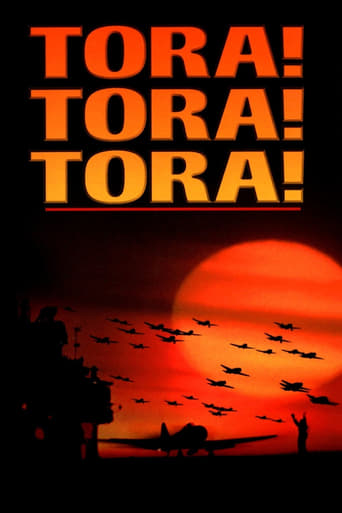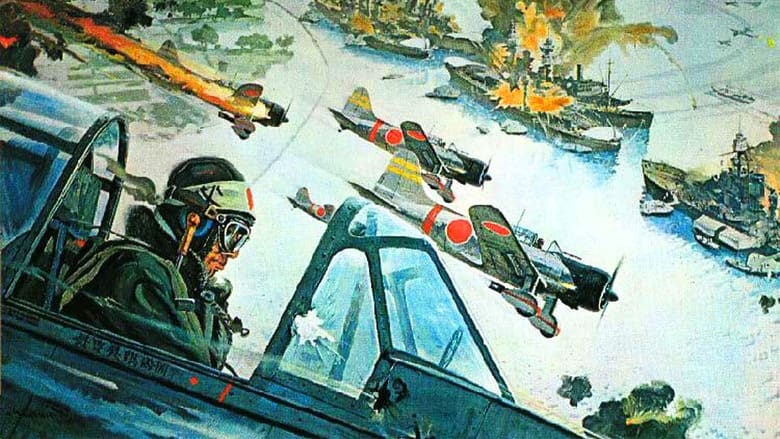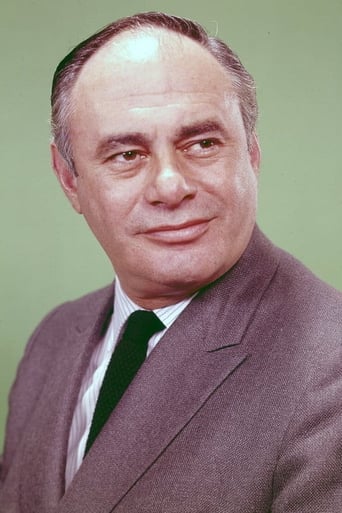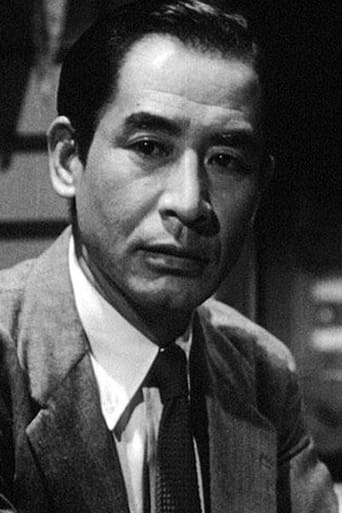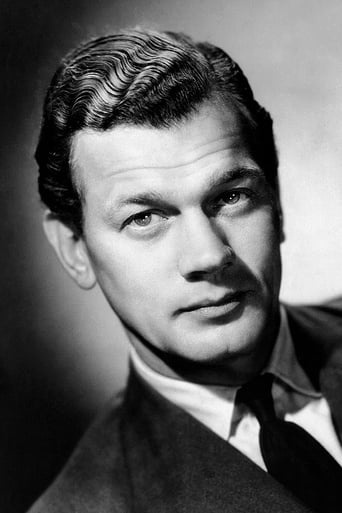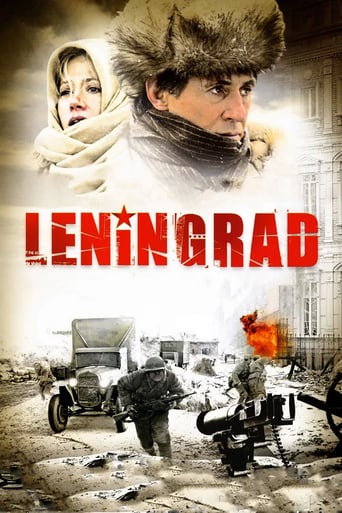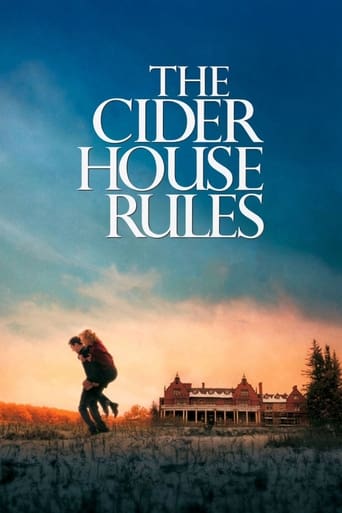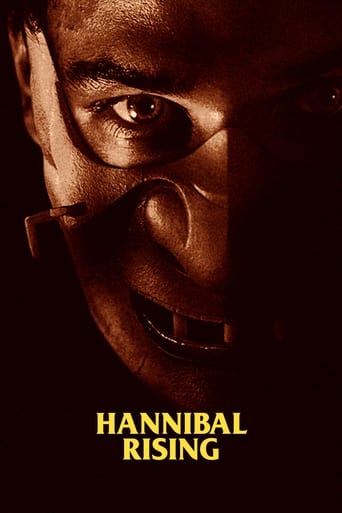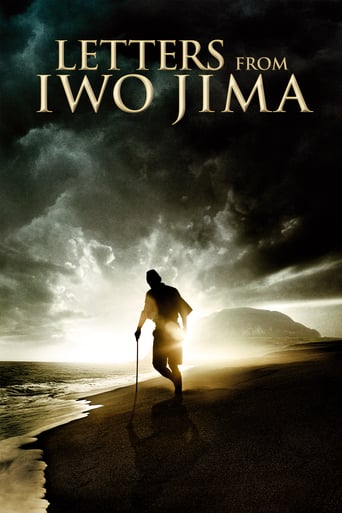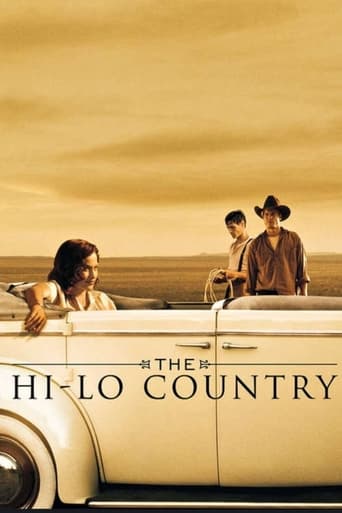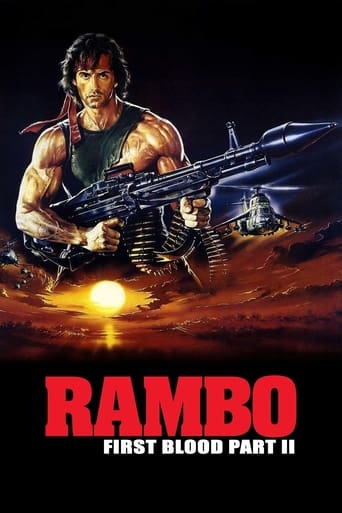Tora! Tora! Tora! (1970)
In the summer of 1941, the United States and Japan seem on the brink of war after constant embargos and failed diplomacy come to no end. "Tora! Tora! Tora!", named after the code words use by the lead Japanese pilot to indicate they had surprised the Americans, covers the days leading up to the attack on Pearl Harbor, which plunged America into the Second World War.
Watch Trailer
Cast
Similar titles
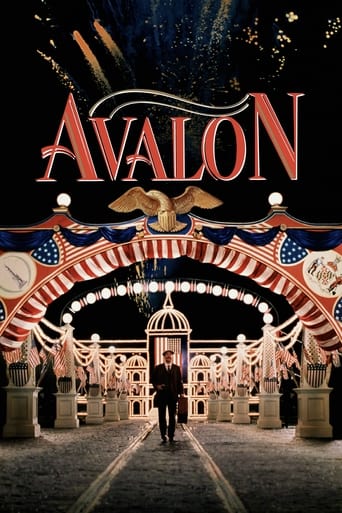
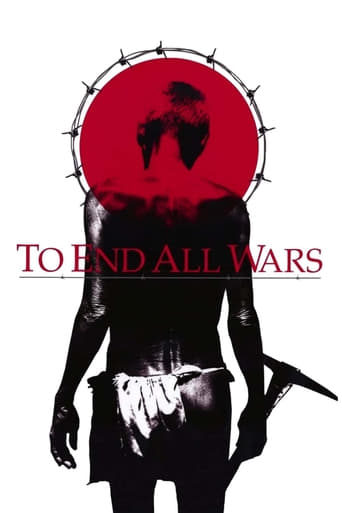
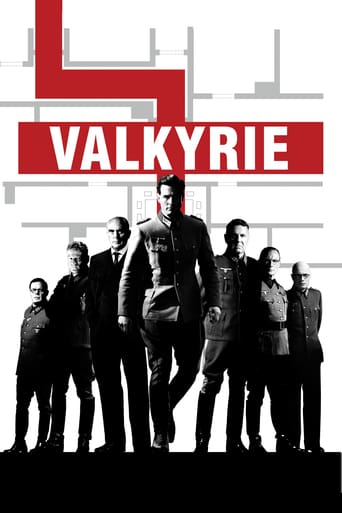
Reviews
A Masterpiece!
In truth, there is barely enough story here to make a film.
Through painfully honest and emotional moments, the movie becomes irresistibly relatable
The film's masterful storytelling did its job. The message was clear. No need to overdo.
More documentary than movie (which explains its failure at the box office in 1970) Tora Tora Tora has grown in stature with time. It was and remains the definitive film telling of the events of the 7th of December 1941.With time we know more of the background to the US codebreaking efforts but nothing that significantly changes the story.I was lucky enough to see Tora Tora Tora on its initial release in 70mm and 6 track sound in a true ToddAO curved screen presentation and at a brand new cinema.It was an overwhelming experience.The Japanese sequences in particular stand out in my memory.I remember the scale of the opening sequence as the camera moves restlessly amongst the naval ratings standing stiffly to attention (in thin cotton costumes apparently in freezing weather).The sheer power of the great Japanese actor Sô Yamamura as Admiral Yamamoto remained in my memory long after the film ended.The special effects are magnificent and very realistic. Perhaps today's CGI would be fancier but I doubt more effective.Nothing beats real planes really flying. The dawn takeoff sequence from the Akagi (played valiantly by a US aircraft carrier) is amazing on the big screen.And the opening of the second half as the Japanese aircraft carriers battle through angry seas was genuinely scary in 70mm!The film is tense at times nail biting even though we know what will happen and perhaps for the first time the Japanese point of view is presented. Not a simple film to love... not a lot of emotion on show.. but a brilliant recreation of one of the most important events of the 20th century. "...No it's Pearl"
I enjoyed the Japanese parts of the movie more than the American. Toshio Masuda and Kinji Fukasaku did a brilliant job, their direction is nearly perfect. The cinematography is excellent.This movie portrayed the Japanese in a sympathetic light, and we learn a lot about their point of view from the movie. It's mostly historically accurate, although some parts are incorrect. The Japanese never intended to declare war on the USA before the Pearl Harbor attack, with a slow typist preventing this from happening on time. In fact, Japan didn't declare war until many days after the attack.Some of the American scenes in the movie are poorly written and directed, except for the actual attack scenes which were accurate and very realistic. In creating the scenes leading up to the attack, the movie makers went too far in portraying most of the American leaders as annoyingly incompetent fools. Overall, although the movie could have been better, it's definitely worth watching.
I've had this film on my radar for quite some time but just got around to watching it today. One of my hesitations which turned out to be completely unnecessary was a common complaint I have with war films - they often throw in some romantic element completely unnecessary for the historical record to receive it's proper treatment. Case in point, 2001's "Pearl Harbor" which also concerned itself with the Japanese attack that ignited our engagement in World War II. With "Tora! Tora! Tora!" I was impressed with the near documentary story telling style, offering an inside look at both the Japanese and American approaches to an impending conflict.I recently happened to catch the original full version of the 1943 documentary "December 7th", commissioned by President Franklin Roosevelt to help explain what happened before, during and after the attack on Pearl Harbor. A good deal of what's shown in that film provided key elements in the subject movie being discussed, with particular emphasis on the number of Japanese living on the Hawaiian Islands. One of the military leaders mentions it here, I think it was Lt. Colonel Bratton (E.G. Marshal) but if not, please excuse. The reason I bring it up is because the film incorporates quite clearly any number of Japanese characters in civilian roles, particularly in military offices as well as domestic help, including General Bratton's own houseboy. The fear of local Japanese sabotage was always quite clearly in mind by the powers that be.The movie offered a couple of surprises, the primary one being that no stock footage of the actual Pearl Harbor attack was used in the production. I thought that might have been an element. Another surprise was that even though the President was mentioned a number of times, there was no actor employed to portray Roosevelt. I thought that was kind of interesting, particularly since FDR almost immediately convened Congress to declare war at the time. But then again, the movie was depicting the day of and not the aftermath.As far as the actual battle scenes, the recreations for the film are simply staggering in an era before CGI and mesmerizing special effects. They aptly convey the horror of war and the chilling resolve of the Japanese kamikaze pilots to inflict a mortal blow to America. Though it wasn't specifically mentioned in the picture, the actual attack lasted just ten minutes shy of two hours, and delivered a devastating blow to America's naval capacity in the Pacific. What it led to was Japanese Admiral Yamamoto's (So Yamamura) prescient observation that the Japanese Empire had awakened a sleeping giant. The march of history was about to be changed for the next seventy years.
The thing that stands out in this movie is the half hour long battle of Pearl harbour. This movie is a historical recreation of the Japanese attack on Pearl Harbour and it is incredibly close to the actual events. It more of a documentary done in the way of a film. The thing is that there are quite a few issues which are of historical significance in this film and that are explored. They are the relationship between the United States and Japan, the US unwillingness to go to war, and the arrogance of the United States into believing that nobody would even consider attacking them, and finally how the people at the top did not realise the extent of the threat while the people at the bottom could inevitably see it coming.The first time I saw this movie was in year 11 during Modern History. The thing that stuck out was the length of the attack on Pearl Harbour, and it was really cool. I remember this one sailor firing this huge machine gun at Japanese planes. Another scene is where a Japanese plane flies over a parade ground, and the reaction of the commander there is that it was some American fly-boy being funny - that is until it drops a bomb.The issue behind the events were in regard to dominance of the Pacific Rim. The Japanese wanted to establish a Pacific Empire, but the problem was that America considered the Pacific Ocean to be theirs, and there was no room for the two super powers to share. The Japanese were feeling pressured by the Americans with their war in China, especially since they ceased trading with them forcing them to either push the Americans out of the picture or to move into South-East Asia. They chose the second option but the Americans reacted very badly to that so they decided that they needed to move on the Americans.The thing that gets me is that throughout the movie we see the Americans as being the good guys and the Japanese as being the facists. What we do not see is the way that the Americans treated the Negroes, the Mexicans, or even the Indians. This was not a war of good against evil, but rather two superpowers fighting over something that they did not want to share. The Americans condemned Japan for its actions in China, yet no mention of the American's actions in their land against the Indians - first of all invading their territories and then displacing them into reserves and even assimilating them. The Negro issue regarding slavery had been sorted out, but they were still considered second class citizens. The American Secretary of Defense condemned the Japanese Ambassador for his nation's actions and made him look like a bad boy, but it is more like a bully forcing a weaker kid to admit that he is the bad person and that the bully is the good person. In my books, nobody is good or bad, but we are all as corrupt as everybody else.The next issue I will address is the belief that America would not be attacked, which I will combine with the difference between the generals and the people at Pearl Harbour. Constantly we are shown how nobody expects Japan to attack. The first event is when the planes in the airbase are grouped togeather to prevent sabotague, yet wise commanders realise that this is bad because an attack could wipe them all out - which it did. Another incident is when the planes are spotted on Radar, but they are ignored because they must be American planes. Nobody was expecting that Japan would make such a bold move, though evidence pointed out that it would happen. The Americans had cracked their codes and were receiving all of the messages. They knew that a fleet had moved out but did not act on it. They had even sunk a submarine just outside of Pearl Harbour, but considered it to be nothing, especially since there was no hard evidence. This couples with the unwillingness of the US to go to war that they would rather ignore the signs in hope that they would not be dragged into a bloody conflict.The one thing that slightly irritated me is that President Roosevelt is never shown (though neither is the Japanese Emperor). It is as if the president is some sort of god symbol who cannot be portrayed on screen. It is probably not that, but that they did not want to go to the effort of trying to find somebody who looks like Roosevelt. It also gives the impression of the generals running the show and that the president simply says yes or no on the really important decisions, but only receives the information that the general wants them to know.This is a good movie. It is historically accurate and as such is a great movie to watch to try and understand the events leading up to Pearl Harbour. It is decidedly pro-American but that is what one should expect when approaching an American movie.
